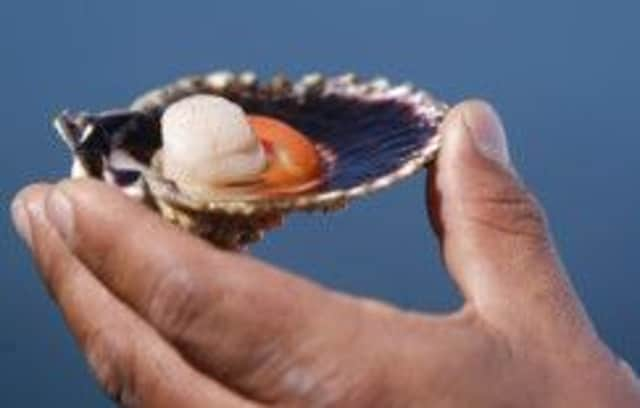Plans for new seafood sector in Scotland


The king scallop is one of Scotland’s prime seafood catches. But traditional scallop dredging has been condemned by environmental groups for damaging pristine seabeds, while attempts to develop a viable scallop farming sector in Scotland have so far failed.
But on 18 February Seafood Scotland and Highlands and Islands Enterprise are to host a meeting to discuss the possibility of developing a new king scallop ranching industry in the Highlands and off Scotland’s west coast.
Advertisement
Hide AdAdvertisement
Hide AdThe conference will be addressed by representatives of Scot-Hatch Ltd, the only Scottish company now harvesting scallops, and the company’s Norwegian partners Scalpro AS.
Scot-Hatch is based at Loch Ewe, south of Ullapool. The company is run by Grant Campbell, a professional scallop diver, and Jane Grant, who operated a scallop farming business on the west coast for ten years until the lack of wild spat (young scallops) forced her to wind up the business.
The duo got together to stablish a pioneering scallop ranching business in Scotland two years ago. Last year they sent scallops, caught in Scotland, to a Norwegian hatchery to spawn and had almost 750,000 scallops spats returned to Scotland to grow them for market. This year they plan to increase their production to 2.5 million.
Grant said: “We want to kick-start a whole new industry that could rival salmon farming in Scotland and could eventually employ the same numbers. We are trying to do something major for the whole of the Highlands and the west coast of Scotland.”
She added that, unlike salmon farming, there were no problems with feed and chemicals. “We don’t feed scallops, we don’t treat them with anything. All they need is clean water. Once they are the right size we put them on the seabed and try to protect them from predators, like starfish and crabs. And they will stay there for three to four years before we send down divers to pick them up.”
“We have produced more scallops than any other farm has ever done in this country – and everybody has given up apart from us. The problem is that the natural wild scallop spat has all but disappeared, for reasons we don’t understand.”
She said the key to developing the industry is to secure funding to establish a central hatchery which could be used by those keen to get involved in the new seafood sector.
Norway, she said, had poured money into hatcheries, but never managed to grow the spat, partly because the water is too cold. “But we believe the conditions in Scotland are ideal.”
Advertisement
Hide AdAdvertisement
Hide AdAnd she stressed: “We are not trying to ostracise the dredger fleet. What we are saying to the scallop dredgers is that they could buy small scallops from us, put them down and leave those areas free from dredging for four or five years before they harvest them. It could be a win-win.”